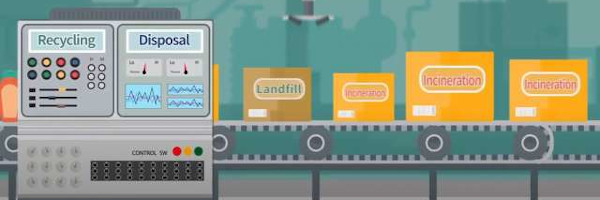Smart Waste Management and Logistics for Municipal Solid Waste Collection Operations
Jump to navigation
Jump to search
| Smart Waste Management and Logistics for Municipal Solid Waste Collection Operations | |
|---|---|

| |
 Municipal Solid Waste Collection | |
| Team Organizations | Motorola Scalable Strategies Ecube Labs |
| Team Leaders | Ed Davalos |
| Participating Municipalities | Goyang Korea |
| Status | Launched |
| Document | None |
Description
Objectives
- Deployment of solar waste compacting bins, ultrasonic fill-level sensors and trackers/beacons
- Utilization of data resource management platform to monitor & analyze various data points
- Increase operational efficiency, reduction in collection frequency, strategic asset allocation, labor costs, and greenhouse gases
Challenges
The lack of waste collection data results in the lack of transparency and accountability
Solutions
The project integrates hardware (M2M) and software enabling real-time data along , route optimization, fill-level information w/ push notifications, and analysis of historical collection data
Major Requirements
- Create scope and requirement, project plan
- Identify the locations for hardware deployments within each city
- Information regarding MSW containers (tech specs, model no., dimensions, field pictures)
- Internal testing and proofing of hardware installation process
- Provide access to software data for real-time monitoring
- Gain stakeholder support and buy-in from the municipalities along with third party contractors
Performance Targets
| Key Performance Indicators (KPIs) | Measurement Methods |
|---|---|
|
|
Standards, Replicability, Scalability, and Sustainability
- The software platform can be access either directly to through the cloud server or API access can be provided to be utilized as part of a bigger city dashboard.
- Historical data collected will be analyzed to create standardized processes used to replicate and scale up cities/regions. The solution will be deployed in 4 US cities and 1 South Korean city
- The projects will have its own business model to create sustainable revenue stream through advertisements, public WiFi as well as reduction in operational costs
Cybersecurity and Privacy
TBD
Impacts
- Reduction in waste vehicle(s) and travel times
- Reduction in Greenhouse gases
- Improving quality of life
- Cleaner public spaces
- Creation of minority jobs
- Transparency & accountability to residents
Demonstration/Deployment
- Full deployment of solar powered waste compacting bins and/or ultrasonic fill level sensors will be in use and collecting real-time used to present at the event
- Demo will include both real-time and historical data to compare results in collection frequency, travel time, gas, air pollution, and cost